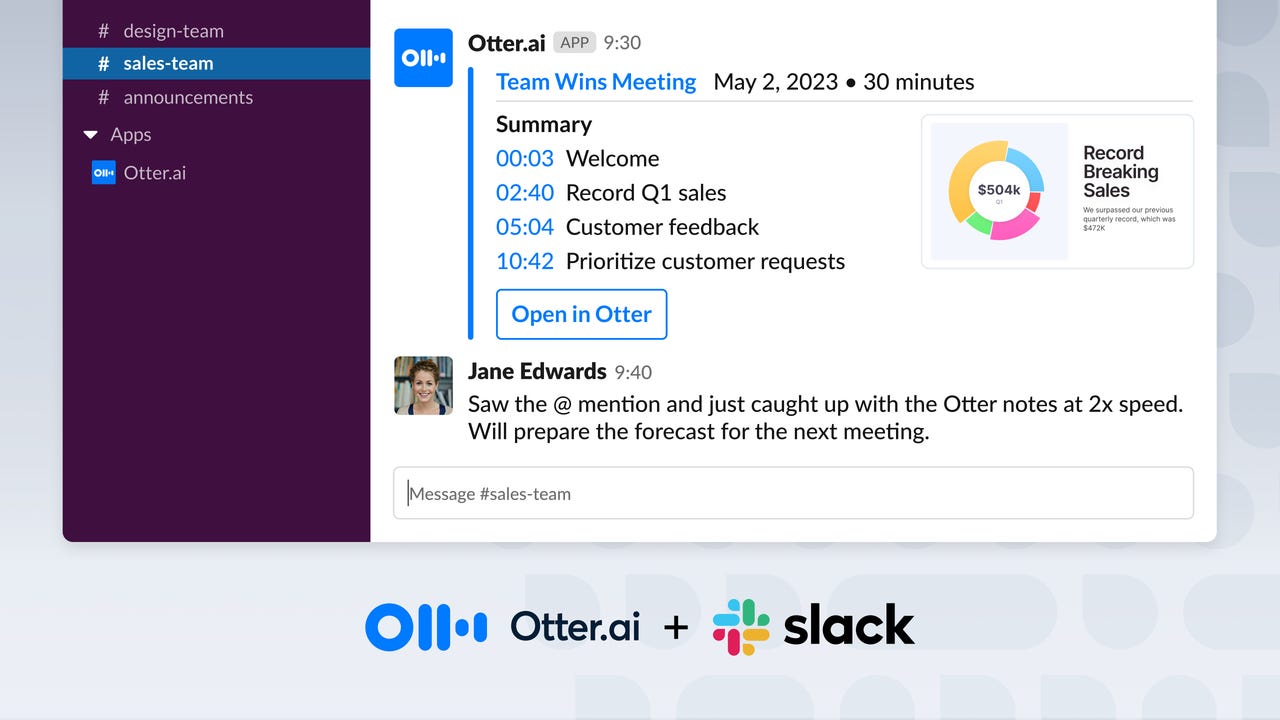































 Otter.ai
Otter.ai Otter.ai was launched in 2016 and has become a reliable speech-to-text transcription service used by several work productivity applications, including Zoom and Microsoft Teams.
Now, it's coming to Slack in a partnership that will "use AI to bridge the work communications gap", according to Otter.ai.
Also: Google is beefing up AI-powered search on Google Chrome for iOS and Android
Professionals will be able to use Otter's transcription tools before, during, and after meetings for AI-generated insights that will then be shared with appropriate team members via Slack.
Otter will also send reminders in Slack before meetings and will enable participants to view notes in real-time, even if people are running late to the meeting.
During the meeting, Otter will take notes and capture information on slide decks to summarize the points discussed. Call members can also add key takeaways and action items to Otter's notes.
After the meeting, Otter will send assignees their action items in Slack and automatically send teammates an AI-generated summary, as well as human- and AI-generated meeting notes.
Also:Otter.ai's new AI chatbot will automate your next steps after meetings
Sam Liang, co-founder and CEO of Otter.ai, suggested the features will help to boost engagement: "Otter for Slack is the first step in unifying voice and text communication between meetings and Slack -- providing conversation continuity among team members."
The combination of features in the app could help professionals curtail time-consuming tasks, such as jotting down notes and debriefing non-attendees. The features could also help professionals avoid meetings that aren't crucial.
However, one potential downside of the app is having to share confidential information with an AI tool.
To take notes and summarize your meetings, Otter has to sit in on your company's meetings, which are likely to contain confidential information. This access leads to concerns about what happens to the information that is saved, where it is stored, how it is stored, and how secure it is.
Also: Generative AI tops Gartner's top 25 emerging technologies for 2023
Tech company Zoom recently faced its own set of privacy challenges after a sneaky change in its Terms of Service, where the firm claimed the right to utilize user content, such as video, audio, and chat data, for its own purposes, including AI projects.
Zoom has since clarified the issue, reassuring customers that it does not use their content to train AI models. However, the controversy did bring more focus to the importance of data privacy when professionals rely on productivity applications.
In its product release, Otter.AI does not address the issue of privacy, which could be the biggest challenge the company faces when trying to convince companies to use its technology.
 Tags quentes :
Inteligência artificial
Inovação
Tags quentes :
Inteligência artificial
Inovação